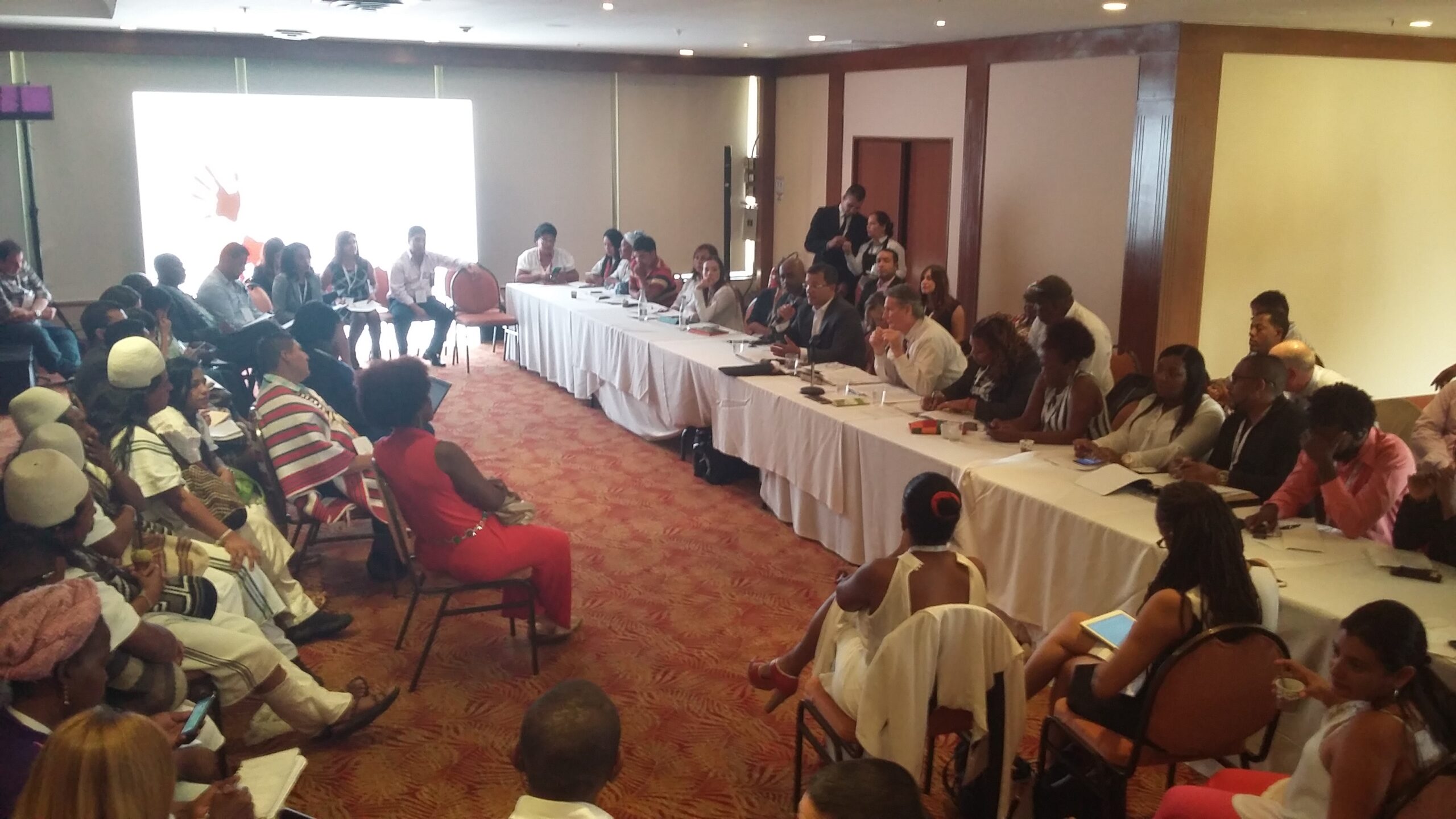CAPREE Meeting: Officials from the US and Colombia Reiterate Importance of Ethnic Groups’ Participation in Peace Negotiations to Achieve a Sustainable Peace
Bogota, April 19, 2016 On April 7 and 8 the first plenary session for civil society of the US-Colombia Action Plan on Racial and Ethnic Equality (CAPREE) was held in […]

Bogota, April 19, 2016 On April 7 and 8 the first plenary session for civil society of the US-Colombia Action Plan on Racial and Ethnic Equality (CAPREE) was held in Cali, Colombia. Pedro L. Cortes-Ruiz, the Institute’s representative in Colombia, participated in the meeting as part of the delegation of civil society organizations from the United States. Nearly 200 indigenous and Afro-Colombian organizations from Colombia participated, as well as representatives from the US Embassy, USAID and officials from Colombia’s Interior Ministry.
CAPREE is a joint plan agreed to by both governments in 2010 whose objective is to share experiences and implement programs that help overcome obstacles in order to achieve full inclusion for Afro-descendants and indigenous peoples in both countries. The meeting in Cali was the first meeting since the Plan has begun.
In both the opening and closing remarks, representatives from the Colombian and US governments underscored ethnic groups’ participation in the peace process as vital to a sustainable peace. Juan Fernando Cristo, Colombian Minister of the Interior, affirmed in his remarks that in the following days an official announcement would be made regarding the delegation of Afro-Colombian and indigenous that will go to Havana. Carmen Inés Vásquez, the Vice-Minister for Participation and Equal Rights, reiterated the announcement during the closing remarks.
Kevin Whitaker, US Ambassador to Colombia, affirmed that priority will continue to be given to issues related to racial discrimination in US post-conflict programs. During closing remarks, US Assistant Under Secretary for Western Hemisphere Affairs Alex Lee reiterated this commitment and affirmed the importance of the participation of ethnic organizations such as the National Afro-Colombian Peace Council (Consejo Nacional de Paz Afrocolombiano, CONPA) and the Ethnic Commission for Peace and Territorial Rights (Comisión Étnica para la Paz y los Derechos Territoriales).
The Institute on Race, Equality and Human Rights recognizes the importance of these political declarations in the context of the CAPREE meeting. In preparation for the meeting, together with the Washington Office on Latin America, the Institute sent a letter to the US State Department expressing concern that CAPREE, one of the principle instruments for bilateral cooperation to eliminate racial discrimination, had not included as a priority the principal problem affecting millions of Afro-Colombians: the impact of the armed conflict on ethnic groups and the vulnerability of these communities in the post-accord context.
The support that CAPREE can continue to provide to strengthen the participation of ethnic communities in peace-building will be of great importance. In the short term, this support will be conditioned by how well the commitment expressed by US and Colombian authorities is translated into concrete actions.
During the meeting, Colombian ethnic organizations were able to make constructive assessments of CAPREE initiatives as well as provide proposals for the future. At the same time, organizations from the US also provided their perspectives and proposals. For its part, the Institute on Race, Equality and Human Rights publicly insisted that CAPREE should prioritize initiatives that support the participation of ethnic communities in the peace process.

